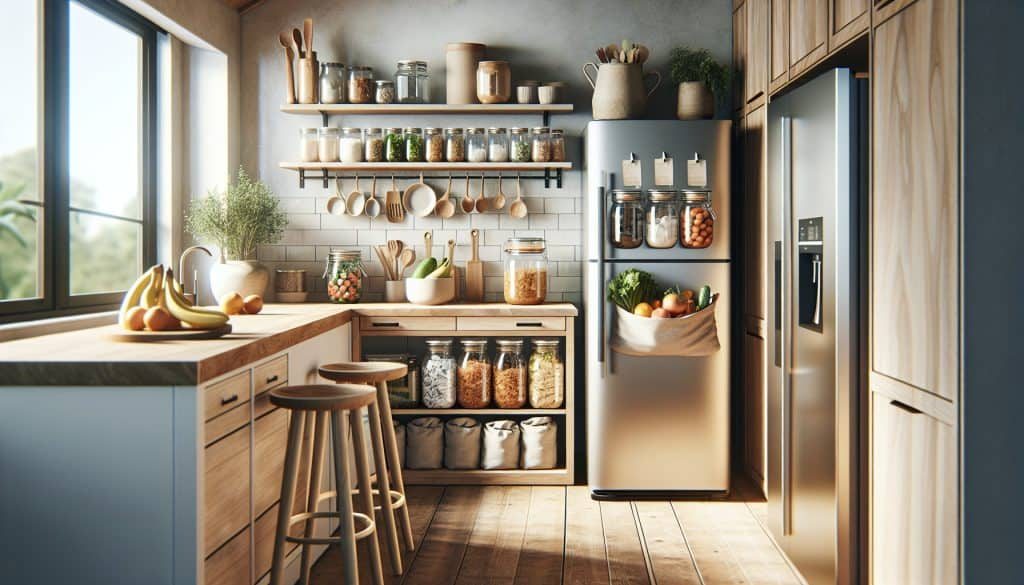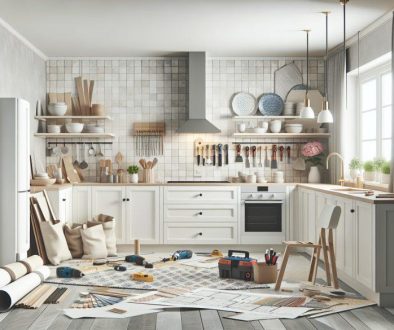Creating a Zero-Waste Kitchen: Tips and Tricks
Discover how to design a zero-waste kitchen with our eco-friendly renovation ideas, tailored for any London kitchen upgrade, creating sustainable spaces.
Welcome to my comprehensive guide on fashioning a zero-waste kitchen! At my London-based company, I specialize in providing personalized eco-friendly kitchen renovation ideas designed to suit your needs. Whether you’re just starting your renovation journey or seeking professional advice, feel free to check out our Kitchen Renovation Ideas page. For expert consultation, give me a call at 01933717988.
Why a Zero-Waste Kitchen Matters
Making a move towards a zero-waste kitchen is more than a fleeting trend; it’s a lifestyle change that can significantly cut down on household waste and environmental impact. In an urban setting like London, the benefits are amplified due to high population density and waste production. Below, I explore how transforming your kitchen into a zero-waste haven can help you contribute positively to the environment.
Effective Planning for a Zero-Waste Kitchen
The first step toward a zero-waste kitchen renovation is comprehensive planning. This involves assessing your current kitchen layout and identifying opportunities for installing sustainable materials and waste-reducing technologies.
- **Use sustainable materials** – Choose bamboo, reclaimed wood, or recycled metal for cabinetry and countertops.
- **Install energy-efficient appliances** – Look for Energy Star-rated options to reduce your electricity usage.
- **Consider composting options** – Incorporate a built-in compost bin to manage organic waste effectively.
Waste Management Solutions
An essential aspect of achieving a zero-waste kitchen is implementing efficient waste management systems. These systems will not only help you segregate waste but also ensure that minimal waste ends up in landfills.
Segregation Bins and Composting
Install segregated bins for recyclables, compostables, and general waste. This makes it easier to handle waste and ensures you’re less likely to throw everything into a single bin.
- **Recycling Station** – Dedicate a specific area for recyclable materials like glass, paper, and plastics.
- **Compost Bin** – Add a food waste composter, which turns organic waste into nutrient-rich soil for gardening.
- **Reusable Containers** – Invest in durable, reusable containers for storage to minimize plastic waste.
Eco-Friendly Kitchen Utilities
Incorporate utilities that are designed to minimize waste and energy consumption. For example, water-efficient faucets and solar-powered appliances can make a significant difference.
Energy and Water Efficiency
The right utilities can drastically cut down water and energy use in your kitchen.
- **Low-Flow Faucets** – Reduce water usage without compromising on performance.
- **Induction Cooktops** – Cook more efficiently and reduce electricity use.
- **Solar Water Heaters** – Utilize natural energy to meet your water heating needs.
Reuse and Repurpose
Instead of opting for brand-new furnishings and appliances, consider reusing and repurposing items. This approach aligns well with the zero-waste philosophy.
Second-hand stores, online marketplaces, and local community groups often have quality items that can be upcycled or refurbished to match your kitchen’s aesthetic.
Creative Upcycling Ideas
- **Vintage Furniture** – Restore old tables and chairs with eco-friendly paint or varnish.
- **Repurposed Decor** – Use mason jars for storage, or old ladders for shelving.
- **DIY Projects** – Build your own kitchen island using reclaimed wood.
Reducing waste in the kitchen starts with intelligent planning and sustainable choices. For more insights, explore my article on Incorporating Sustainable Materials in Kitchen Upgrades. Also inspired by an interesting article on this topic from [The UK Home Design](https://www.ukhomedesign.com/eco-friendly-kitchen-renovations), these tips will help you make your kitchen greener and more sustainable.



